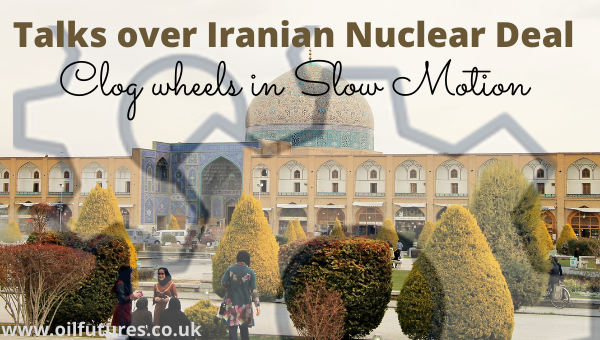A member of a powerful parliament committee in Iran,
a cleric, according to the Iranian media, has said whatever agreed upon in
Vienna, must be approved by the Iranian parliament – in the end.
It echoes the concerns of the moderates in the
Iranian administration about the delicate balance that the negotiation team has
to strike while participating in the ongoing talks in the Austrian capital.
Since the Iranian presidential elections are scheduled
for June, the negotiating team, handpicked by the administration of President
Hassan Rouhani, has not got much time left on their hands.
The views expressed by the influential cleric on the
eve of the next round of talks between Iran and the signatories to the JCPOA,
2015 Iran nuclear deal, is certainly going cast a shadow over the final
outcome. That, however, does not mean a final deal cannot be struck, as both sides
want a clear path ahead devoid of confrontation in cold-war calibre.
Iranian oil sector has been hoping for the light end
of the tunnel for months, as they have been increasing the production of the
crude oil; their potential buyers, meanwhile, are waiting in the wings to be
part of the process. In this context, Iran cannot afford to let the ongoing
discussions head towards a failure.
On political front, meanwhile, the talks between
Iran and its Sunni rivals in the region in order to reset ties do not seem to
be making the progress well; the initial enthusiasm has clearly fizzled out.
Saudi Arabia and the UAE, for instance, still
harbour reservations about Iranian nuclear activities; there is no palpable
enthusiasm in Riyadh or Abu Dhabi over the talks on the JCPOA in Vienna.
The process of the reviving ties between Saudi
Arabia and Iran hardly gets a boost, when the latter has to thwart attacks by
the Houthi rebels on its infrastructure – almost on daily basis; even today, an
attack at Red Sea was foiled by the Saudi-led Arab coalition.
In light of these unpredictable political
developments, analysts of the crude oil markets watch both the talks in Vienna
and the evolving regional volatility before making any long-term predications.
This may be one of the reasons for the head of Baker
Hughes to be cautiously optimistic about the prospect of oil price in the next
few months, despite encouraging economic news, in an interview with an Arabian
newspaper at the weekend.







